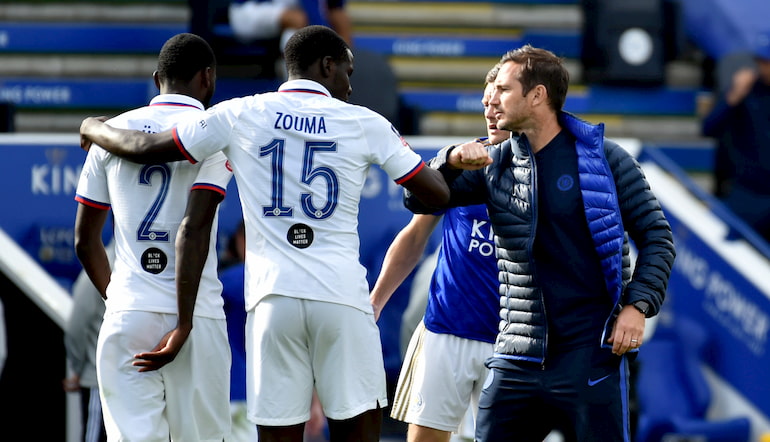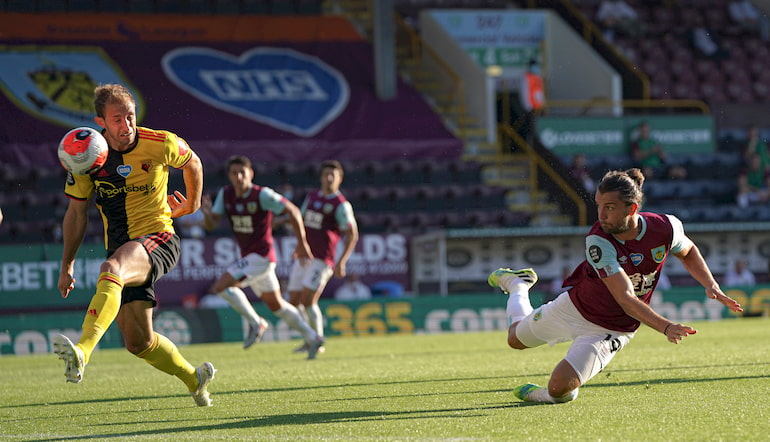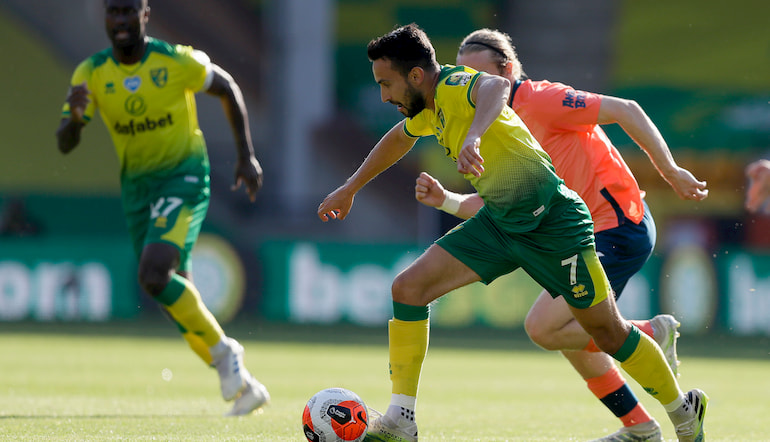The arrival of timeouts in the Premier League has been met with scorn like most changes are. It is a popular topic among commentators, a gripe heard at the halfway point of every half.
There was an exception (when the UK experienced sweltering weather for a couple of days in late May) but the general sense around the timeouts has been frustration.
Football is particularly resistant to change, and particularly so with things that can be deemed an Americanisation.
Timeouts fall into that category and currently under the guise of a water break, it’s easy to criticise them on a 13-degree, breezy evening in Manchester.
Key Points:
The reasons for their introduction are obvious after the season was halted for months. Football being played in mid-summer runs the risk of unfavourable conditions.
In the early days of Premier League timeouts, we are already seeing impacts beyond hydration. They are significant enough to be a factor of consideration in online betting.
In this most peculiar of seasons, timeouts are still considered (by some, at least) to be a radical introduction, a drastic change to the flow of the game.
Keeping them long-term might seem unlikely, though there are a few reasons this could extend beyond the pandemic-disrupted 2019/20 season.
Financial Motivation
It goes without saying that money runs football decision making - as it does with most things.
The possibility to increase revenue has seen sleeve sponsors arrive in recent years, it has led to the suggestion of a new European tournament and an expanded European championship.
Timeouts aren’t going to make money for clubs all by themselves, but they’re an ample advertising opportunity which would no doubt be exploited before long.

Highlight packages, pitching changes and near enough everything you can imagine in American sports has sponsorship deals.
Whether television companies see timeouts as a chance to squeeze in some adverts or they get a sponsor’s name read out when they begin, there’s a money-making opportunity there.
It’s a bit of a surprise it hasn’t happened already, and perhaps a clear sign that the Premier League views this as a temporary thing, but would anyone be shocked if next season Martin Tyler was introducing ‘Lucozade Timeouts’ or something of that ilk?
Financial power impacts football betting decisions – teams are never shy of finding ways to increase revenue.
Tactical Impact
Managers, for the most part, love them. Their impact on the game is limited away from half-time and their three substitutes.
With two extra subs and two breaks midway through each half, managers can influence their team and make significant tactical tweaks in a way they could not before.
Certain managers have quickly made use of the timeouts, altering the course of matches. Others have seen it as an opportunity to pat their players on the back.
The use of the timeouts could turnout to be a difference maker, separating teams in top four betting.
What can really be said in such a short break is hard to tell. Occasionally it might be little more than added impetus, a reminder of pre-match instructions.
For a sport where managers are replaced with ruthless regularity, their ability to control what is happening on the pitch is relatively limited.
Barring masterful substitutions, their work is done during the week on the training ground and through their team talks. It is understandable that they would want greater opportunity, for better or worse, to influence their team’s matches.
The reputation of a manager can impact the outright winner odds in football. Pep Guardiola’s arrival will see a team’s price shorten, and a less respected man in the dugout will lead to less betting confidence.
The timeouts bring another way to analyse managers, another means to look at their decision making.
It is commonplace to evaluate NBA coaches by their team’s plays run after timeouts (and their usage of them), and by comparison football managers cannot make in-game tweaks in the same way.
For many, timeouts represent a fresh way to look at a manager, and perhaps managers, carrying the burden of flimsy job security, deserve that.
Stoppage In Play
Any breaking up of the ‘flow of the game’ is seen as sacrilege.
Timeouts quite blatantly do so, and in a forced, arguably intrusive way that seems alien to those who have lived their entire lives with football as they know it.

What is forgotten in that viewpoint, however, is the general stop-start nature of the sport. Goal kicks, hesitant throw ins, centre-backs trudging up the pitch for a corner, all result in a stoppage.
Football isn’t as free-flowing as we often like to remember. Timeouts are an additional halt to proceedings, and like VAR, they slow the game down further.
That is an issue, and one that will bother some more than others.
Here To Stay?
Timeouts are a major change to the way the game is played.
There are positives, and the added influence of managers provides a new layer of intrigue, but at this time it feels very unlikely they are adopted into the 2020/21 season and beyond.
Alongside a stop clock and other alterations to the sport, timeouts will probably revert to the centre of thinkpiece articles and occasional panel show discussion rather than a staple of the elite game.

Whether that’s a good thing or not is entirely objective. The suspicion is that few fans will miss timeouts, and commentators will be very pleased to see them removed.
There are upsides which shouldn’t be forgotten about, but football’s general reluctance to change means reverting to a timeout-free game is the most likely outcome.
888sport has all the latest Premier League betting odds, tips and analysis – visit our blog for features, interviews and previews.
*Credit for the main photo belongs to Dave Thompson / AP Photo*


